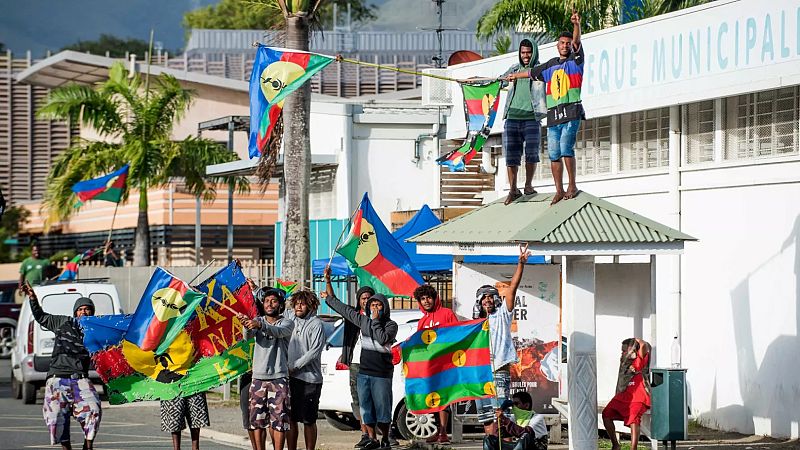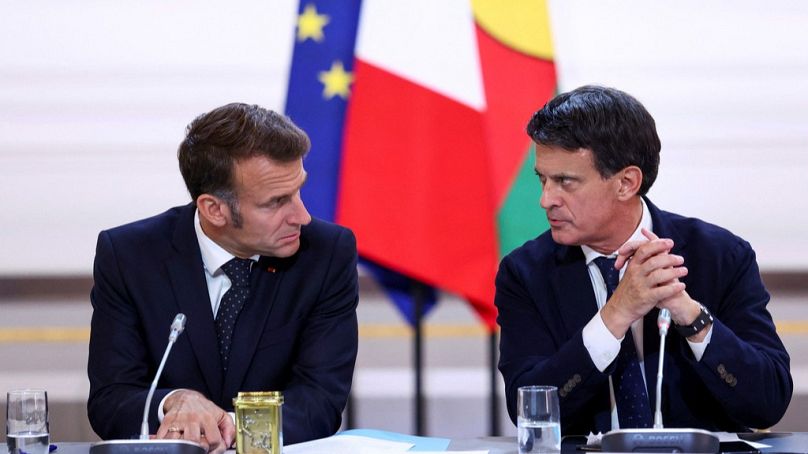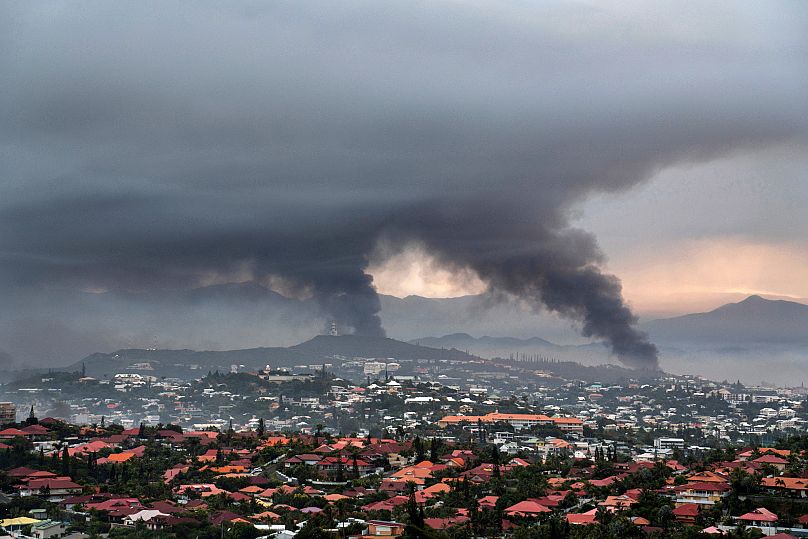French bid to create 'State of New Caledonia' rejected by pro-independence bloc

The main pro-independence coalition in the French overseas territory of New Caledonia has rejected a Paris-brokered deal to establish the Pacific archipelago as a new state.
France last month announced a sweeping, hard-fought agreement aimed at granting more autonomy to New Caledonia, but stopping short of the independence sought by many indigenous Kanaks.
The accord proposes the creation of a "State of New Caledonia" that would remain French and be enshrined in France's constitution. Under the plan, the archipelago's citizens would hold both French and Caledonian nationalities, instead of just the former.
The agreement was reached after 10 days of negotiations in Paris involving representatives of the French government and those on both sides of the territory's independence debate, including the Kanak Socialist National Liberation Front (FLNKS).
However, the FLNKS, New Caledonia's leading pro-independence alliance, this week said its extraordinary congress had voted to reject the deal outright.
"The FLNKS formally rejects the Bougival draft agreement because it is incompatible with the foundations and achievements of our struggle," Dominique Fochi, a member of the coalition, said at a press conference on Wednesday.
Another FLNKS member, Marie-Pierre Goyetche, said the bloc had launched a "peaceful appeal to our supporters to say stop to the state if it intends to force this through."
The lack of a provision for a new independence referendum, a key demand for many indigenous Kanak campaigners, was the deal-breaker, local media reported.
France's Minister for Overseas Territories Manuel Valls said in a Facebook post that he would travel to New Caledonia next week in a bid to salvage the "historic compromise".
Recent unrest
New Caledonia was hit by mass riots in May 2024, triggered by French government plans to give thousands of non-indigenous long-term residents voting rights. The unrest resulted in the death of at least 14 people and caused billions of euros worth of damage.
Currently, only Kanaks and those who arrived from France before 1998 can cast their ballots in elections. However, since 1998 a further 40,000 French citizens have moved to the overseas territory of New Caledonia.
France held three referendums in New Caledonia on independence between 2018 and 2021 as part of an agreement known as the Noumea Accords that followed a 1988 peace deal that ended violence between rival factions.
A majority of voters chose to remain part of France instead of backing independence. The Kanaks rejected the results of 2021 referendum, which they boycotted because it was held at the height of the COVID-19 pandemic that severely affected their community.
According to the 2019 census, 32.5% of indigenous Kanaks, who make up 41% of the region's total population, live in poverty.
There have been calls to diversify New Caledonia's indebted economy, which depends heavily on nickel mining, and ultimately make it less reliant on the French mainland.
Today



